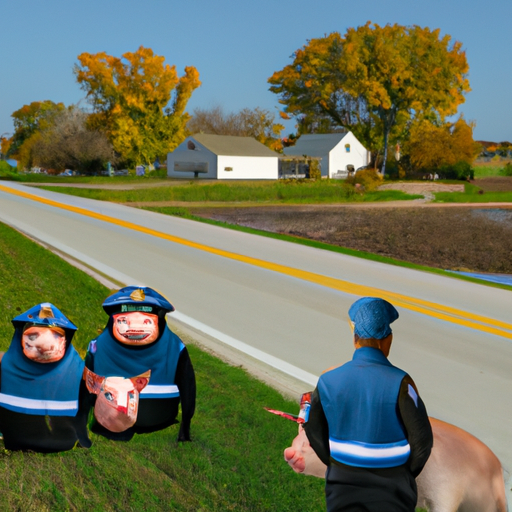Sunshine State Safari Park in Florida proudly announced the birth of its 40th rhinoceros calf yesterday. The park’s management team seemed unusually ecstatic at the news, given that the rhino has become one of the most endangered mammals in the world.
In a special press conference held at the park, Jay Walker, manager of the park, said that they were thrilled to welcome yet another new member of the park’s rhino family. He added that the park owes its continuing success in breeding rhinoceros to the tireless effort of their highly dedicated team.
However, the birth of the 40th rhino calf at Sunshine State Safari Park is not exactly an achievement in wilderness conservation. It is more of a triumph in animal husbandry, breeding and marketing. From the park’s perspective, rhinos may be among the most awe-inspiring beasts to behold, but they are also a surefire crowd-draw for tourists and animal lovers.
In fact, some critics of wildlife tourism point out that breed-and-display zoos like Sunshine State Safari Park are often just thinly-veiled cash-grabbing schemes that masquerade as conservation programs. As ecologist David Tubb said in a recent interview, “Breeding captive animals simply for the purpose of displaying them to paying visitors is not conservation. It does nothing to protect wildlife or their natural habitats.”
Nevertheless, the park’s management team insists that the birth of the 40th rhino calf is a testimony to their commitment to wildlife conservation. They claim that their conservation program aims to provide a safe and healthy environment for the rhinos and to educate the public about the critical role these animals play in maintaining ecological balance.
Meanwhile, Sunshine State Safari Park’s marketing team is no doubt already busy drafting promotional materials featuring the newest addition to the rhino family. The park’s gift shop will also be stocked with a variety of rhino-themed souvenirs, from figurines to T-shirts to keychains.
With the new arrival of the 40th rhino calf, Sunshine State Safari Park joins a long list of other zoos and parks that breed rhinos in captivity. And while these efforts may be seen as praiseworthy in some circles, the ultimate question remains: how helpful is captive breeding in rhino conservation?
The staggering rate of poaching in countries where rhinos are indigenous means that the survival of the species depends on effective law enforcement, habitat protection, and grassroots education. The global community must work together to combat high-level criminal networks that drive the demand for rhino horn.
In the meantime, Sunshine State Safari Park remains an idyllic refuge for its rhinos, as guests marvel at the majestic creatures. That is what the park is all about, after all: giving visitors a chance to interact with extraordinary wild animals in a safe and controlled environment, for a hefty admission price. Here’s to the next 40 rhino calves!


